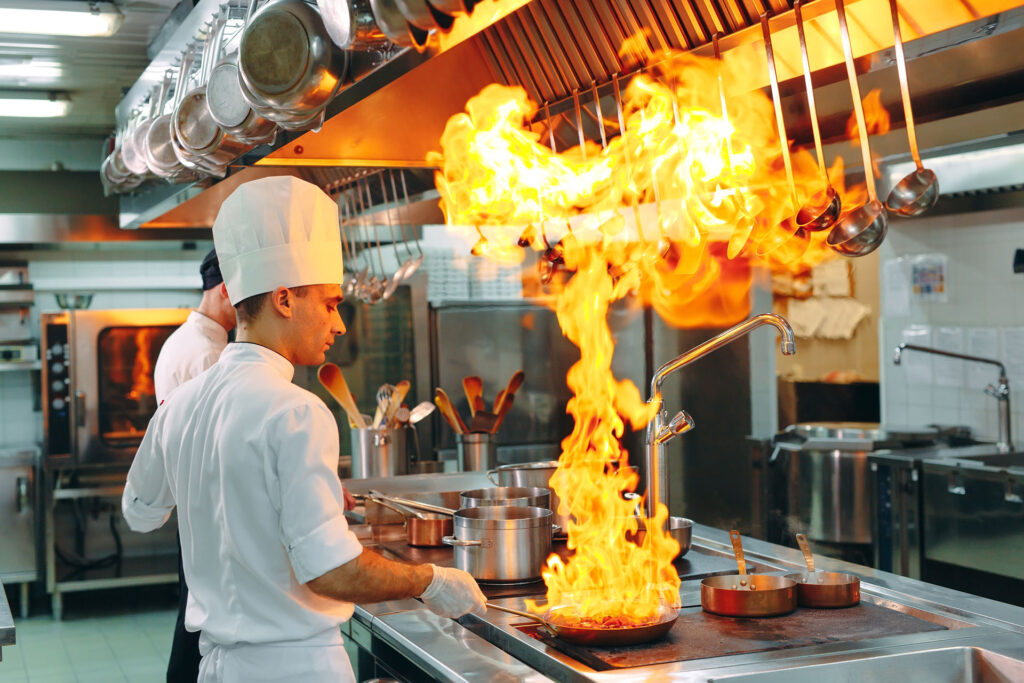In the environment of a commercial kitchen, safety and cleanliness are important. One of the critical components that help maintain both is the food service hood filter. These filters play a vital role in keeping the kitchen safe by trapping grease, smoke, and other contaminants that can pose fire hazards and health risks. Understanding the different types of hood filters available can help restaurant owners and kitchen managers make informed decisions about which ones best suit their needs.
What are MERV Ratings?
When selecting hood filters, it’s important to consider the Minimum Efficiency Reporting Value (MERV) rating (opens in new window). The MERV rating measures a filter’s ability to capture particles of varying sizes, with a higher rating indicating better filtration efficiency. For commercial kitchens, filters with a MERV rating between 1 and 8 are typically used, as they effectively capture larger particles like grease and dust.
However, if your kitchen requires higher air quality standards, such as in healthcare facilities or allergy-sensitive environments, you may opt for filters with a MERV rating of 9 or higher. These higher-rated filters can trap smaller particles, including smoke and fine dust, further enhancing air quality and safety. Understanding the MERV rating of your filters helps ensure that your kitchen’s ventilation system is both effective and compliant with health and safety standards.
Choosing the Right Hood Filter for Your Kitchen
Selecting the right hood filter for your kitchen depends on several factors, including the type of cooking you do, the volume of food prepared, and your kitchen’s specific needs. For instance, a high-volume restaurant that specializes in fried foods will likely need durable and effective baffle filters, while a bakery or café might opt for lightweight mesh filters.
Maintenance and Cleaning
No matter which type of filter you choose, regular maintenance and cleaning are crucial to ensure they function effectively. Grease and other contaminants can quickly build up, reducing the efficiency of the filter and increasing the risk of fire. Most filters, particularly baffle and mesh types, can be cleaned by soaking them in a degreaser and rinsing with hot water. Charcoal and disposable filters, on the other hand, need to be replaced according to the manufacturer’s recommendations.
Baffle Filters
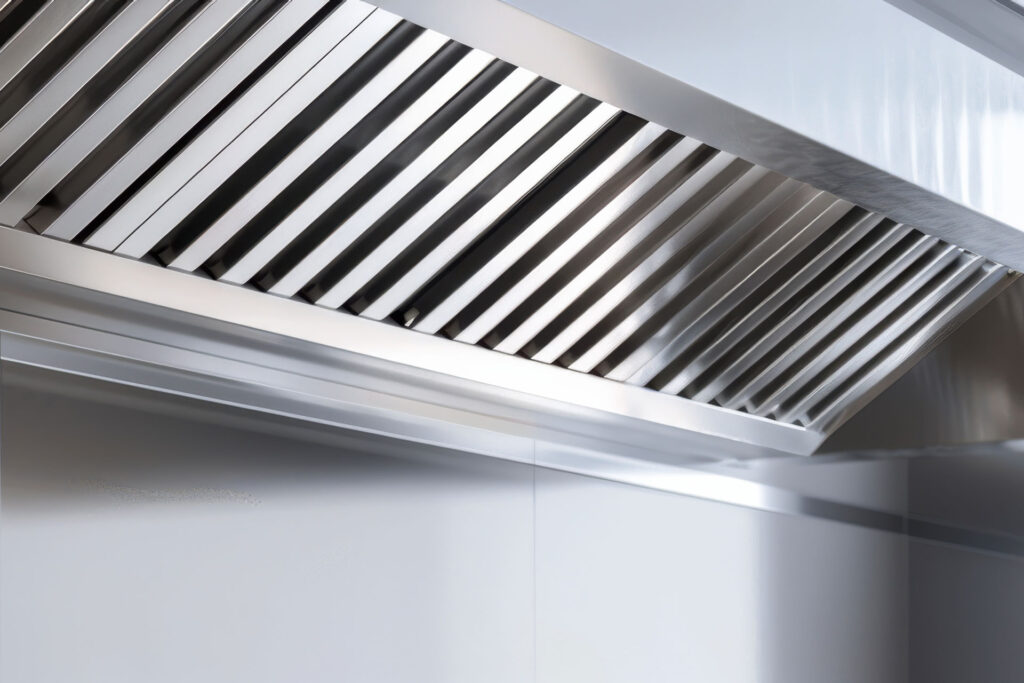
Baffle filters are among the most common types of hood filters used in commercial kitchens. These filters consist of overlapping metal vanes, usually made of stainless steel or aluminum, that force the air to change direction as it passes through. This change in direction causes grease particles to condense and collect on the vanes, preventing them from entering the exhaust system.
Advantages
- Highly effective at trapping grease
- Durable and long-lasting
- Easy to clean and maintain
Ideal For
Kitchens with high grease production, such as those that frequently use frying or grilling.
Mesh Filters
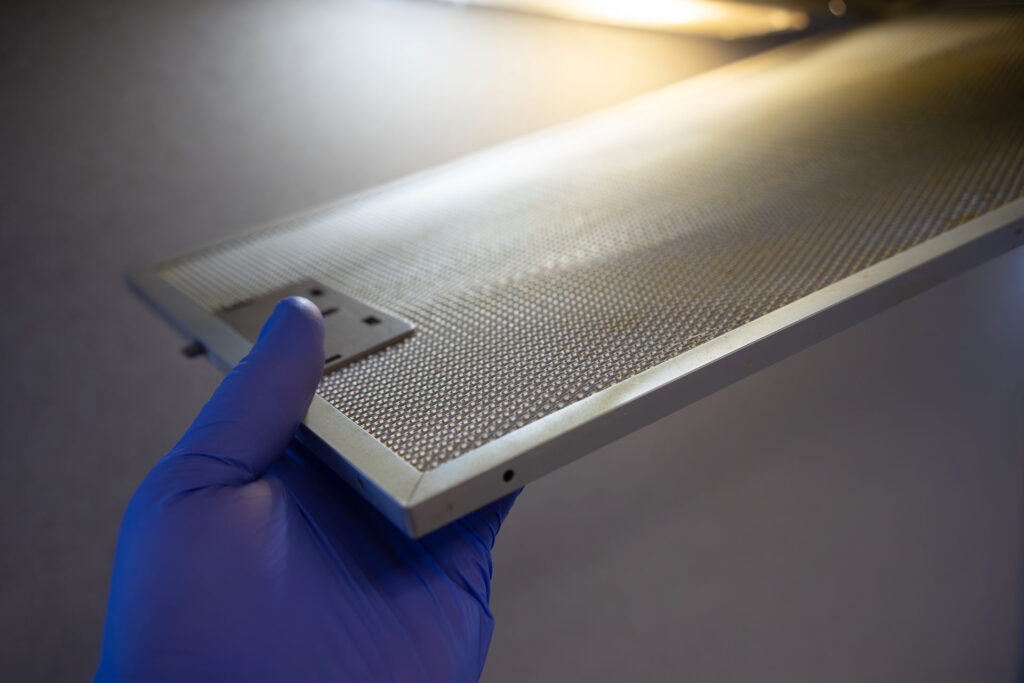
Mesh filters are made of layers of fine mesh, usually aluminum or stainless steel, that trap grease and other airborne particles. The mesh design allows for a larger surface area to capture contaminants, making these filters particularly effective in environments with less grease production.
Advantages
- Lightweight and easy to install
- Effective for low to moderate grease production
- Cost-effective
Ideal For
Kitchens with low to moderate grease output, such as those that primarily use ovens or steamers.
Charcoal Filters
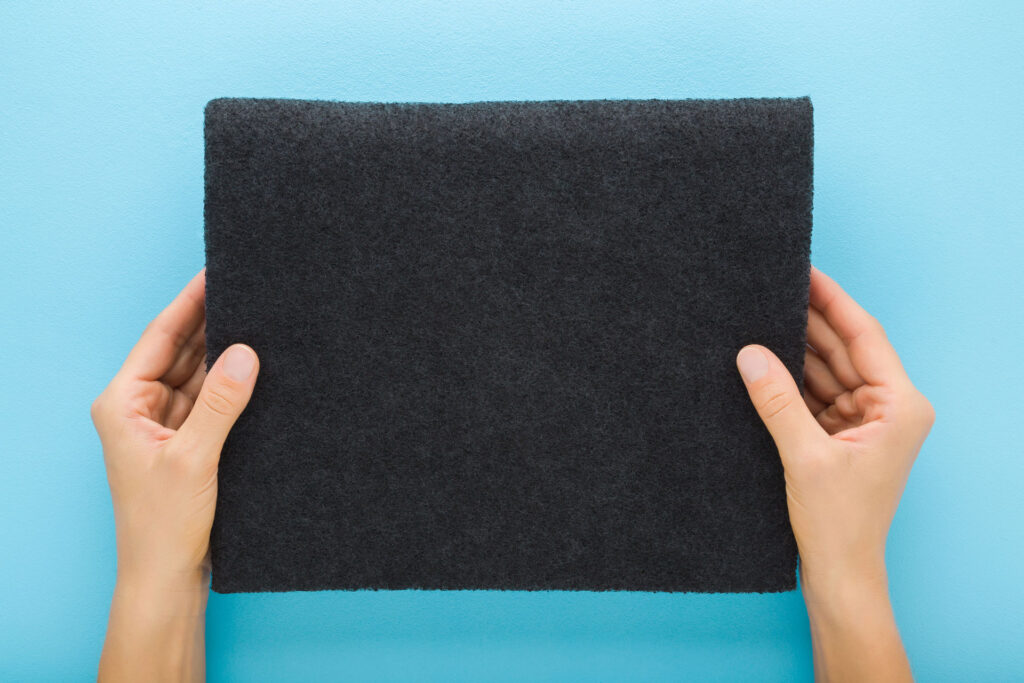
Charcoal filters are designed to absorb odors and smoke, making them an excellent choice for kitchens where managing smells is a priority. These filters are typically used in conjunction with other types of filters, such as baffle or mesh, to enhance overall air quality.
Advantages
- Excellent at odor control
- Helps reduce smoke
- Can be used in a variety of kitchen environments
Ideal For
Restaurants where odor control is essential, such as those with open kitchen concepts or close proximity to dining areas.
High-Efficiency Particulate Air (HEPA) Filters
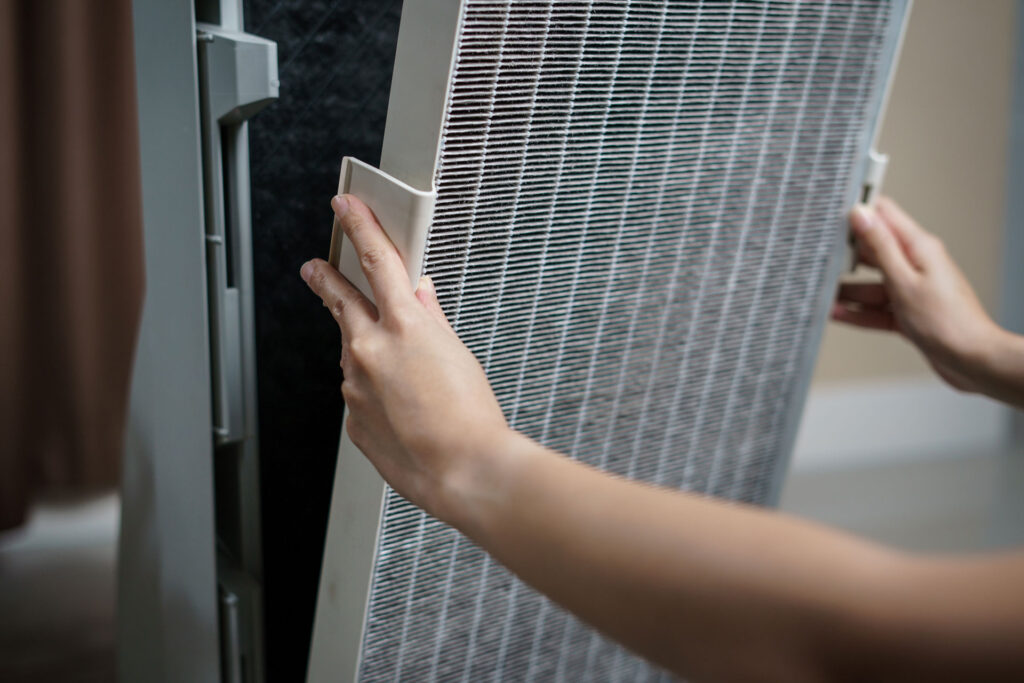
HEPA filters are designed to capture fine particles, including dust, pollen, and smoke, making them suitable for environments where air quality is a critical concern. While not commonly used as standalone filters in kitchen hoods, they can be part of a multi-stage filtration system in sensitive environments like hospital kitchens or restaurants with strict air quality standards.
Advantages
- Captures up to 99.97% of particles 0.3 microns or larger
- Ideal for environments requiring high air purity
- Enhances overall air quality
Ideal For
Kitchens in sensitive environments, such as healthcare facilities or establishments with stringent air quality requirements.
Electrostatic Filters
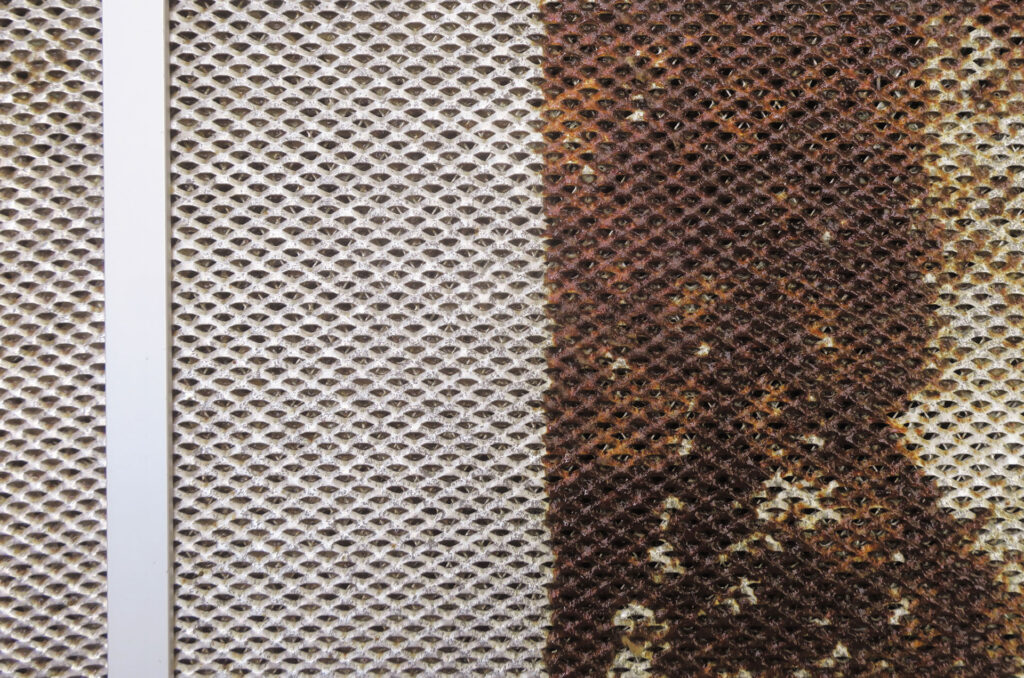
Electrostatic filters use an electric charge to capture airborne particles, including grease, smoke, and dust. As air passes through the filter, the particles are attracted to and collected on the filter plates. These filters are highly effective and can be cleaned and reused, making them a cost-effective solution in the long run.
Advantages
Highly effective at capturing fine particles
Reusable and eco-friendly
Long lifespan
Ideal For
Kitchens with high smoke or grease production, or those seeking a reusable filter option.
Disposable Filters
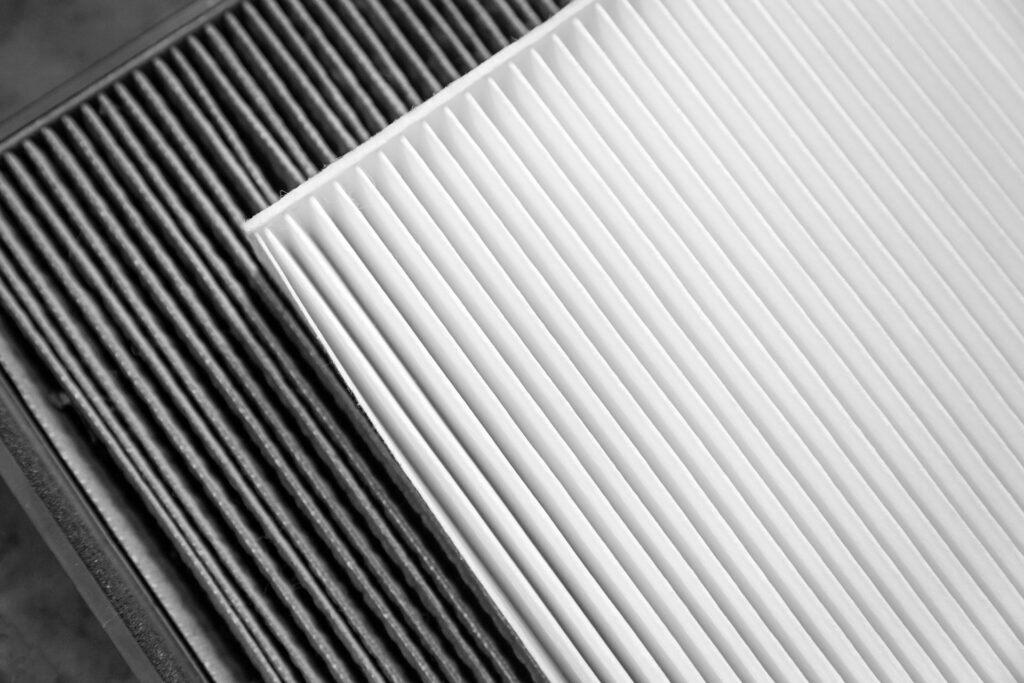
Disposable filters are single-use filters made from a variety of materials, including paper, synthetic fibers, or metal. These filters are convenient for kitchens that prefer a low-maintenance option, as they can be replaced easily without the need for cleaning.
Advantages
- Low maintenance
- Easy to replace
- Suitable for one-time use
Ideal For
Kitchens with moderate grease production that prefer a quick and convenient filter replacement process.

